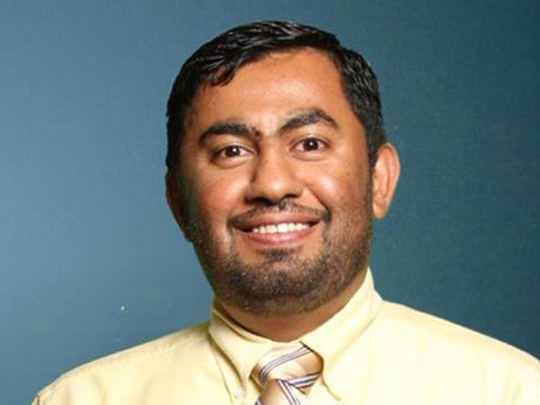
Dubai: Have you ever wondered how your favourite foods are made, preserved and packaged?
The first Certified Food Scientist (CFS) in the UAE, Yousuf Saeed Al Saadi, built on his curiosity from a young age to explore the processes behind the ingredients, appearance and taste of food, making food science his long life career.
While being a food scientist is not a very common job, Al Saadi, was recently recognised as a CFS among scientists from 54 different countries by the International Food Science Certification Commission (IFSCC) and the Institute of Food Technologies (IFT). Along with a food scientist from Saudi Arabia and another from Egypt, Al Saadi is one of three food scientists in the Arab world and one of 1,441 food scientists worldwide.
“I am honoured to receive this certification, I am volunteering to be a food scientist ambassador for all food scientists in the region. My goal is for the UAE to have 20 CFSs by the year 2020,” Al Saadi, whose main focus is the microbiology of food, said.
Presently working on a PhD in food science, Al Saadi talked about the important role of food scientists in the development of the food industry in an exclusive interview with Gulf News.
A food scientist’s daily duties can vary depending on his specialisation in the field. “A food scientist may work in the food industry to help find better ways to select, preserve, process, package and distribute food products,” Al Saadi said.
Depending on the area of his or her expertise, scientists also analyse both raw ingredients and finished food products, and experiment with new additives and substitutes to promote healthier food. “They also work with the production processes, with techniques like canning, drying, evaporation, blanching, baking and pasteurisation,” he added.
Whether their area of expertise involves basic or applied research, food scientists share a common objective which is to ensure a safe end food product. “The job is not only limited to increasing the nutritional value of food products, but also improving its appearance and taste. working with engineers, production personnel and marketing experts to resolve product development problems is essential,” explained Al Saadi.
In his job at the Abu Dhabi Food Control Authority (ADFCA), Al Saadi’s main focus is to analyse food products for bacterial pathogens, which are any disease-producing microbes. He uses advanced methods in the detection process to ensure that products are free from bacteria that may cause food poisoning or food-borne illnesses.
The food scientist has also discovered an emerging pathogen associated with life-threatening neonatal infections resulting from the consumption of contaminated powdered infant formula (PIF) milk. As a result, the UAE was one of the first countries to take a precautionary measure to protect the health of infants by ensuring that instructions on the correct handling and use of PIF milk is included in the product’s label, explained Al Saadi.
With his goals including future advanced research in food microbiology, Al Saadi highlighted the need of a higher number of CFS in the UAE and the region, which he aims to help increase.
“I am happy that I will be taking part in the process of feeding the growing population of nearly nine billion people projected by 2050 in the world,” Al Saadi said.











